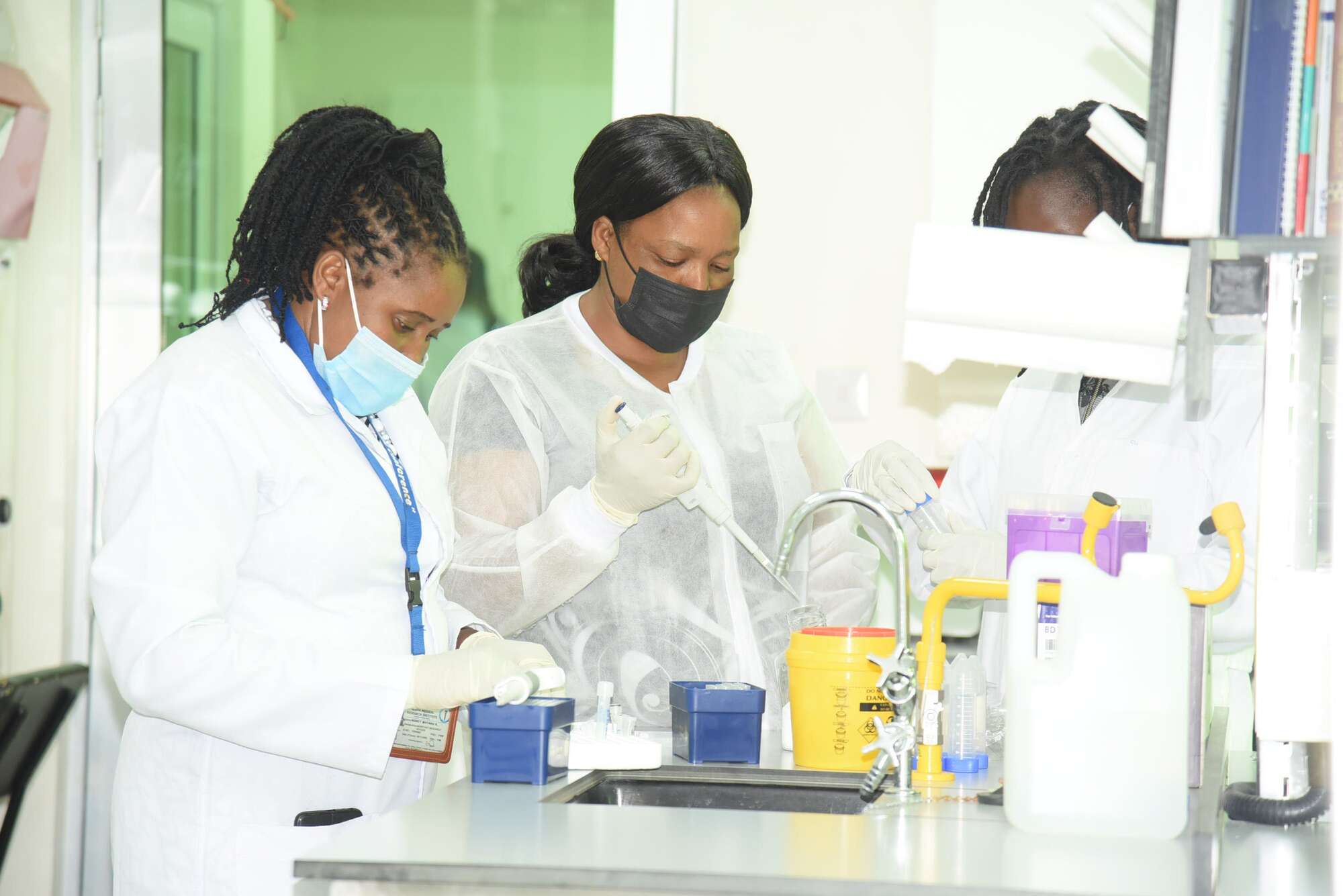[ad_1]

Kenya is raising prospects of faster research into chronic illnesses after launching a new centre for stem cell studies meant to define the future of medicine in a troubling set of diseases.
Scientists at the Kenya Medical Research Institute (Kemri) say the studies at the Centre of Excellence in Stem Cell Research will help new ways of treating diabetes, cancer, burns and leishmaniasis (also known as Kala azar).
Kemri’s Board Chair, Dr Abdullahi Ali, said that the Centre will also cut costs for patients who would otherwise go abroad to seek stem cell therapy.
This kind of therapy is used by scientists to regenerate damaged organs, tissues or functions through the transplantation of stem cells, the unspecialised cells in our bodies that scientists can either renew or duplicate to recreate tissue.
Read: Israeli researchers reveal secret language of plants
“You all started from a stem cell. It is the basis of life. We will now use this centre to reprogram our scientific knowledge to help us tackle diseases. This gives hope to many patients suffering from different diseases,” explained Dr Kimani Gachuhi, one of the key scientists at Kemri involved with the Centre’s projects.
Dorcas Wachira, Head of Stem Cell Research at Kemri explained that apart from drug discovery, other potential uses for stem cells including coming up with treatments for anti-aging, personalised medicine, wound healing, baldness, spinal cord injury, Alzheimer’s disease, bone marrow transplantations, deafness, blindness, among others.
Wachira, however, said that what may take longer than expected is the linkage between the science and application to the real world in the form of treatment –clinical application.
“This may take time, but eventually, we will reduce mortality resulting from different diseases once our studies get approved by relevant scientific bodies globally,” she said.
The research centre received funding of about Ksh77.2 million ($544,945) given as a grant by the National Research Fund (NRF).
“As an African scientist, it makes me happy to be the generator of research and not just the consumer,” said Prof Nelly Mugo, Director Research and Development at Kemri.
The facility spearheads Kenya’s government agenda on local manufacturing of medical products with the potential of becoming a biotechnology industry.
“We have a highly trained and experienced team who have developed vaccine candidates, diagnostic kits and drugs for different diseases. These Kemri products are ready for large scale manufacturing,” said Prof Elijah Songok, Acting Director General Kemri.
“I am glad that we have local support for funding research. External funders are great, but they cannot always address our priorities. We took lessons from Covid-19, and we now want to ramp up our biotechnology industry for our country,” he added.
Read: Health experts in Kenya probing new coronavirus strain
Kenya’s Science, Technology and Innovation (STI) Act, 2013 urges the government to ensure that 2 per cent of our Gross Domestic Product (GDP) is set aside for research and development.
Yet Kenya currently spends about 0.8 per cent of their money on Research and Development. This rate slightly falls short of the Africa Union’s recommendation of investing at least 1 per cent of our GDP in research.
Prof Ratemo Michieka, chairperson of the National Research Fund urged the government to keep supporting research as it is essential for social and economic development.
“Globally, there is a consensus that Research, Science, Technology, and Innovation are at the heart of development and that investment in this sphere is critical to ensuring long-term growth,” said Prof Michieka.
The Stem Cell unit is one of the flagship projects for Vision 2030 in the country.
“This Stem Cell Research Unit will serve as a Stem Cell Research Hub at the host institution as well as to the local, regional, and international collaborators thus making Kemri a Centre of Excellence in Stem Cell Research,” Prof Michieka added.
Kemri says it will also train young researchers from the East African region in stem cell research field will also have an opportunity to be trained in the field of stem cell and regenerative medicine, as well as establish a repository of stem cells in Kenya.
[ad_2]
Source link



